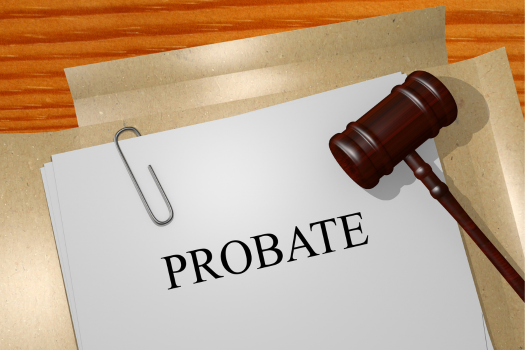Inheriting a house in Stockton Inheriting a rental property can be bittersweet, as it may come with both opportunities and challenges. On one hand, it’s a tangible reminder of your loved one and the memories you shared. It comes with its own set of challenges. One of those challenges is deciding whether to rent or sell the inherited property.
In this blog post, we’ll talk about the pros and cons of renting out a house you received. Like how you can make passive income from an inherited rental and how you might have to deal with difficult renters. We will also talk about how to sell a property you got. This includes how much it costs to fix up and whether you want to sell it to family members.
Then we’ll talk about important things like probate and how to handle the property of a loved one who has died, especially if it’s a house I inherited. We’ve asked experts for advice and put together a list of questions and other tools to help us get through this hard time.
Pros and Cons of Renting Out an Inherited House

You can get rental income from a house you inheritedYou might need to pay expenses like property taxes and maintenance costs while deciding whether to keep the inherited property as a rental. You can also buy yourself time to decide whether to sell the inherited house or keep it as another investment property. But there are some problems. One of it is having to deal with renters and property management. You also need to deal with legal responsibilities, possible financial risks, vacancies. They will all lower rental income, and fixes that take a long time. A landlord also needs to know about tax breaks for landlords who rent an inherited house. Hire a property manager, deal with renters well, and keep the property’s value up.
Benefits of Renting Out
Renting out an inherited house is a good idea. Especially for those who want to earn passive income from their inheritance. It gives you a steady stream of rental income that can pay off any bills or taxes on the property. It will also keep you from having to sell it when the market is bad. But keeping up with tenant management and repair can take a lot of time, and you have to follow laws and rules about landlords and tenants. If you take care of your property, find good renters, and set rent prices based on the market value, renting it out could be the best long-term choice for your finances.
Risks of Renting Out
Renting out a property you got as a gift can be a good way to make passive income, but it also has some problems you should think about. As a landlord, you are responsible for keeping the property in good shape, handling the tenants, paying the property tax and mortgage on time, and dealing with legal issues. Hiring a property management company can add to the cost of being a landlord. Also, there could be vacancies, which would mean less renting income, or tenants could damage the property, which could lead to expensive repairs and a loss of money. So, before you rent out the house you inherited, talk to a real estate investor or agent who has a lot of experience. They can help you figure out the best choice for your situation, whether to manage the property or sell the home.
Can You Manage Tenants?

Renting out an inherited house can be profitable, but it requires managing tenants. This process can be demanding and stressful, particularly if you’re not familiar with the local rental market and are considering rental property ownership. You have to choose between hiring a property management firm or tackling tenant issues on your own. If you opt for self-management, prepare to screen renters thoroughly and handle maintenance requests promptly. Ultimately, the decision to rent out the property rests on your financial objectives and ability to handle landlord duties.
Should You Hire a Property Manager?
Hiring a property manager can ease the burden of rental property management by handling tenant screening, rent collection, and maintenance. However, this convenience comes at an additional cost. If you have experience or time to spare, self-management is an option. Choose based on your own needs and preferences when inheriting a rental property.
Deductions for Landlords
Renting out an inherited house can come with both benefits and challenges. Although you can earn a steady stream of passive income from your rental property, being a landlord requires time and effort. On the bright side, you may be able to take advantage of tax deductions for repairs, maintenance costs and property taxes associated with your investment property. Furthermore, as a landlord, you have the right to deduct expenses related to the rental from your earned income tax return. Nevertheless, keep in mind that there are drawbacks – such as limitations on deductions like depreciation or personal use of the inherited home.
Selling Your Inherited House
If you want to sell a house you received, it’s important to think about how the market is doing and how much the house is worth on the open market. Determine whether renovations are necessary to get top dollar for your inheritance. Find out how selling will affect your taxes, and weigh your emotional connection to the item against how much money you might make or lose. Keep in mind that there are other things you can do with the property. Like renting it out or keeping it as a holiday home that could bring in passive income or serve as a place for the family to get away.

Pros of Selling Inherited Property
If you’re deciding whether to sell an inherited house, keep in mind that selling has its advantages. It provides a lump sum of cash, frees you from maintenance and repairs, and can prevent family conflicts. Consider factors such as market value, tax implications, legal fees, and renovations for resale before making the final decision. With careful consideration and planning, selling the inherited property could be the best option for achieving financial stability in both the short and long term.
Related Post: Selling a Inherited House
Cons of Selling Inherited Property

It’s essential to consider the disadvantages before selling an inherited property. Selling might not be easy due to emotional attachment and could result in significant tax implications. If repairs or renovations are necessary before selling the house quickly and at a reasonable price might not be possible. While renting out the property can ensure a steady stream of rental income, it demands ongoing upkeep and management.
Renovations for Resale
Renovating an inherited house can add significant value to the property and attract potential buyers looking for a move-in-ready home. Yet, when deciding whether or not to invest in renovations, keep in mind that they can be time-consuming and expensive. Consider local demand for renovated properties in your area before making a decision. Also factor in emotional attachment to the home – letting go of a family home can be challenging. Nonetheless, ensuring that you get top dollar for your inheritance might mean investing in new upgrades like a new roof or updated appliances.
Selling to Siblings or Family Members
Selling an inherited house to family members may help preserve its sentimental value and keep it within the family. However, such sales entail certain disadvantages like conflicts and strained relationships due to disagreements on pricing or other terms. In such cases, open and honest communication is crucial, with professional guidance from a real estate agent or attorney being advisable. Selling an inherited property presents unique challenges that require careful consideration of factors like market value, inheritance tax, legal fees, and more.

The Probate Process
Inheriting a house can lead to different options such as renting it out. But before that, it’s crucial to know about the probate process involving filing a petition for probate and inventorying assets which can cause delays and costs. During this period of time that your property is in probate, you might want to sell or rent it out and take help from an attorney or financial advisor.
Understanding Probate

It’s essential to understand probate and its related legal requirements before renting out or selling an inherited house. Probate is the legal process of transferring ownership after a person’s death. Inherited property may need to go through probate before renting it out. While probate can be time-consuming and expensive, it ensures fair and legal asset transfer. Once completed, you can choose to rent out or sell the inherited home for rental income or lump sum sale proceeds.
How Long Does Probate Take?
Probate is the legal process of distributing a deceased person’s assets to their heirs. Its duration depends on factors such as complexity and disputes among heirs, taking from months to years. Probate is expensive due to fees and expenses that can reduce inheritance but renting out an inherited house can help cover costs.
Time-Consuming vs. Costly
Renting out an inherited property can provide passive income, but it also requires maintaining the property and dealing with tenants. During probate, renting out the property can help cover costs like property tax, upkeep, and legal fees. However, renting comes with expenses like repairs and renovations that may eat into your inheritance. To make the right decision, consider real estate market value, capital gains tax, tax deductions, short sale options, or selling to family members. A top-performing realtor or property management company provides peace of mind for good tenants and financial stability in early retirement.
Dealing with a Deceased Loved One’s Property

If you have inherited a property, dealing with it can be difficult. To start, determine the legal status of the inherited property and seek advice from an attorney if necessary. When deciding whether to keep, sell, or rent out the property, consider both financial considerations and personal preferences. Bear in mind that there are tax implications for inheriting a property and renting it out, along with potential emotional obstacles. Through thoughtful planning and professional guidance from a real estate agent or property management company, you will make the best decision for your situation.
Related Blog: Selling House Before Parents Death
Inheriting a House with a Mortgage
If you inherit a mortgaged property, you may find it challenging to keep up with mortgage payments without negatively affecting your financial stability. Renting out the inherited home can generate rental income that helps offset mortgage costs and ensures good upkeep of the property. However, managing tenants and taking care of maintenance and repairs may not be everyone’s cup of tea. Selling the property to a real estate investor or via a short sale may be viable options too. Make sure you weigh all pros and cons before taking any decision.
An Airbnb Rental Property?
Renting out an inherited property on Airbnb can generate a reliable income, but it comes with the responsibility of managing guests. Legal and tax considerations must also be factored in. The decision to rent out an inherited house should depend on one’s financial goals, personal situation, and readiness to handle landlord duties.
Can You Claim Depreciation on an Inherited House?
When inheriting a house, it receives a step-up in basis, making depreciation irrelevant. Renting out the property requires upkeep and tax considerations. Selling may be ideal if you want to avoid rental responsibilities or need cash. Consult with a professional to make an informed decision.
What is the One Percent Rule?
The One Percent Rule helps real estate investors decide if a rental property is a good investment by ensuring monthly rental income is at least one percent of the property’s cost. Renting out an inherited house provides steady income but requires maintenance and tenant management. Selling provides a lump sum but forfeits long-term rental income. Evaluate personal circumstances and financial goals before choosing to rent or sell.
What is the 50% Rule?
The 50% Rule suggests that rental income should cover roughly half of expenses like property taxes and maintenance. It’s a useful guide for deciding whether to rent out an inherited house, but emotional attachment and responsibilities like tenant management should also be considered. Seek advice from experts before making a decision.
FAQs about Renting and Selling an Inherited House
If you’ve inherited a property and are unsure whether renting or selling it is the right choice for you, there are several things to consider. Renting the property out can provide a reliable stream of passive income from your tenants. However, being a landlord requires maintaining the upkeep of the rental property and managing tenant requests. Selling the inherited house allows you to cash in on its value and avoid dealing with the hassles of being a landlord; however, selling also comes with closing costs and capital gains taxes that could impact your earnings from the sale. We recommend speaking with a real estate agent or certified public accountant (CPA) before making any final decisions.
Should You Sell or Rent an Inherited Property? Weighing the Pros and Cons
Deciding whether to sell or rent an inherited property can be a challenging decision. As the new owner, you have the option to become a landlord and generate income from rent or sell the inherited home for potential capital gains. There are several factors to consider when making this choice. If you choose to rent an inherited property, you can benefit from a monthly rental income, especially if the house is located in a desirable area with a high demand for rentals. However, you must also consider the responsibilities that come with being a landlord, such as property management and maintenance. Additionally, there may be risks involved, including property damage and a potential vacancy rate. On the other hand, selling an inherited home can provide you with a lump sum of money, which can be useful for other investments or financial obligations. However, this may also result in paying capital gains tax on the profit made from the sale. To make an informed decision, it is advisable to consult a tax professional and weigh the pros and cons of selling versus renting the property. Additionally, you should consider your long-term goals and financial situation to determine what will be more beneficial for you.
Conclusion
Inheriting a house in Stockton can be a mixed blessing. The decision to rent or sell it is often tough, and both options have their pros and cons. Renting out your inherited house may provide you with additional income, but it also comes with its own set of risks. On the other hand, selling your inherited property may give you a lump sum amount, but you might miss out on future rental income. Understanding the probate process and getting professional insights from experts is crucial before making any decisions. To learn more about the pros and cons of renting or selling an inherited house, read our detailed blog which includes expert insights, FAQs, and related resources.

Contact Us
We would love to hear from you! Please fill out this form and we will get in touch with you shortly.




